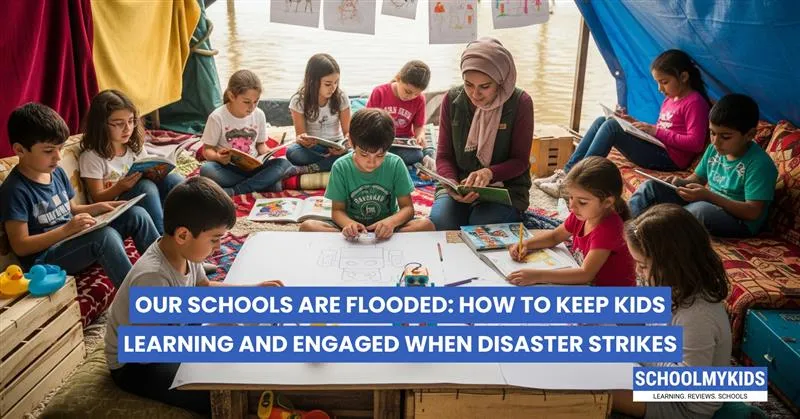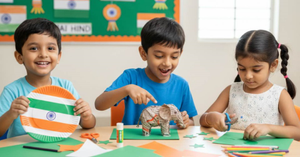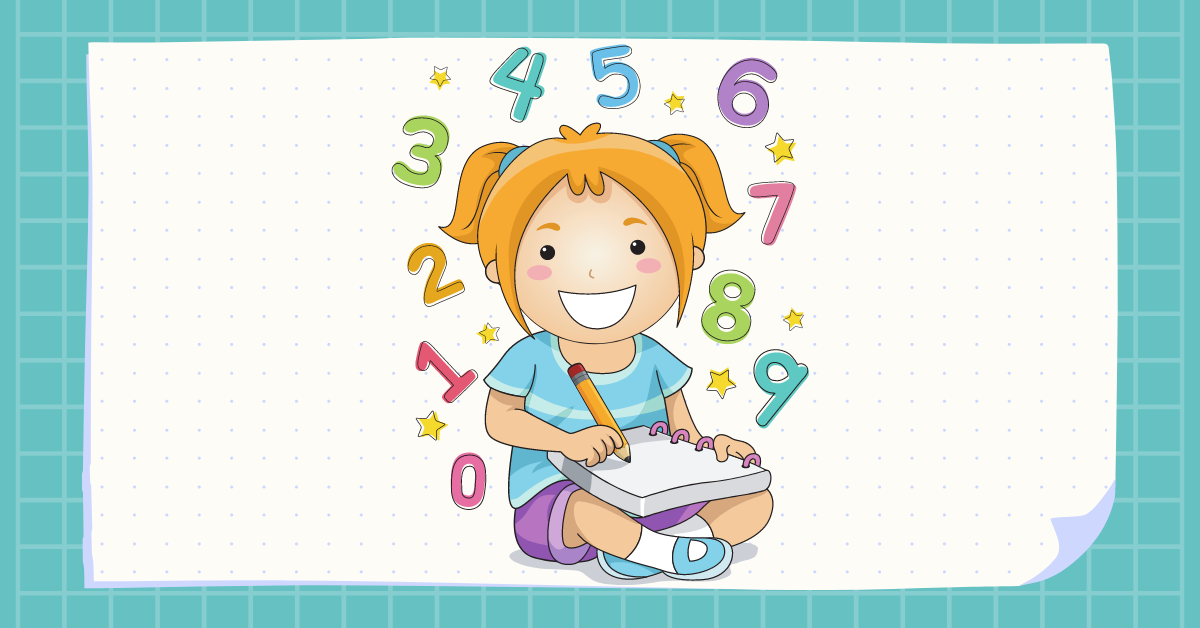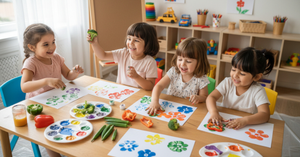Your child's school bag sits untouched by the door. The uniform hangs clean in the wardrobe. And you're staring at yet another school closure notice on your phone, this time it's floods, again.
If you're reading this, chances are you're one of thousands of parents across India dealing with the same reality right now. Punjab schools closed until September 7th. Uttar Pradesh districts calling holidays. Rajasthan under red alert. Shimla dealing with landslides. The list goes on.
You're not just worried about the floods anymore. You're worried about your child falling behind. You're wondering how long this will go on.
When nature disrupts our plans, it doesn't just flood our streets; it floods our routines, our sense of control, and our children's education. But your home can become the best classroom your child has ever had.
The Reality We're Living In
This isn't just a "few days off school" situation. Climate change has made our monsoons unpredictable and extreme. What used to be steady, four-month rains are now turning into massive downpours that flood entire regions in hours.
The science is clear: warmer oceans mean more moisture in the air. Jet streams are becoming "wavy," steering weather systems in new directions. Mountains are becoming unstable as glaciers melt faster than ever before. Add human activities like unplanned construction and clogged drains, and we have a recipe for recurring disasters.
This means school closures during monsoons might become our new normal. The sooner we accept this reality, the better we can prepare our children for it.
Your Child's Mind During Crisis
Before we jump into solutions, let's talk about what's happening in your child's head right now. They're dealing with disrupted routines, possible anxiety about the floods, and the strange mix of excitement and worry that comes with unexpected "holidays."
Some kids might seem fine on the surface but feel unsettled inside. Others might openly express fears about when things will return to normal. Both reactions are completely natural. Your job isn't to fix their feelings; it's to provide stability while acknowledging that yes, this is unusual, and yes, we're going to handle it together.
Creating a Learning Sanctuary at Home
Start with Structure, Not Subjects
Forget about replicating school exactly. Instead, create a rhythm that works for your family. Maybe it's:
- 9 AM: Family breakfast and day planning
- 10 AM - 12 PM: Learning time
- 12 PM - 1 PM: Lunch and free play
- 2 PM - 4 PM: Creative activities or skill building
- Evening: Family time and reflection
The key is consistency, not perfection. If your child is used to waking up at 7 AM for school, don't suddenly let them sleep until noon. Maintain some structure as it's comforting during uncertain times.
Turn Your Living Space into Learning Zones
You don't need a fancy study room. Use what you have:
- The kitchen table becomes the main learning station
- A corner with cushions becomes the reading nook
- The living room floor becomes the art and craft zone
- The balcony (if safe and dry) becomes the observation deck for weather and nature study
Make Learning Real and Relevant
This is where home learning beats classroom learning hands down. Everything around you becomes a teaching opportunity:
- Math is everywhere: Cooking involves measuring, time management uses counting, and budgeting for flood supplies teaches money concepts.
- Science is happening outside: Why do floods occur? How does rain form? What makes some areas more flood-prone? Your child is living through a real-time geography and science lesson.
- Language grows through conversation: Talk about what you're experiencing. Let them express their feelings through writing or storytelling. Read news together (age-appropriately) and discuss what's happening.
Practical Learning Activities That Actually Work
- The Weather Journal: Give your child a notebook to track daily weather, water levels if visible, and their feelings about the situation. This combines science observation, writing practice, and emotional processing.
- The Family News Hour: Spend 30 minutes each day discussing current events at their level. Let them ask questions. This builds critical thinking and helps them understand they're part of something bigger.
- Kitchen Chemistry: Cook together, but talk about the science. Why does bread rise? What happens when you mix oil and water? Cooking teaches measurement, following instructions, timing, and basic chemistry.
- Story Creation: Ask your child to create stories about brave characters dealing with floods or families helping each other during difficult times. This processes their experience creatively while building language skills.
- The Help Project: Involve them in small ways to help others affected by floods. Maybe it's sorting old clothes for donation or drawing pictures for flood relief workers. This teaches empathy and social responsibility.
Managing Screen Time Smartly
Yes, your child will probably spend more time on screens during extended closures. That's okay, so don't feel guilty about it. But make it count:
Educational Apps and Websites:
- Khan Academy Kids for younger children
- Vedantu for structured learning
- YouTube channels like Ted-Ed for older kids
- Duolingo for language learning
Set Boundaries That Work:
Instead of random time limits, try content limits. "You can watch three educational videos, then we do something offline." This teaches self-regulation while keeping screen time purposeful.
Dealing with Practical Challenges
- When Internet is Patchy: Download content when connectivity is good. Have offline backup activities ready, such as books, puzzles, art supplies, and board games.
- When Motivation is Low: Some days will be harder than others. On those days, focus on just maintaining routine rather than pushing academic content. Read together, talk, and play simple games. Connection matters more than curriculum.
- When You Feel Overwhelmed: You're not expected to become a teacher overnight. Your job is to be a facilitator, not an expert in every subject. It's okay to say, "I don't know, let's figure this out together."
Building Life Skills That Schools Can't Teach
This disruption is actually an opportunity to teach things that formal education often misses:
- Adaptability: Show them how to adjust plans when circumstances change.
- Problem-solving: Involve them in figuring out solutions to daily challenges.
- Community connection: Talk about how people help each other during disasters.
- Environmental awareness: Help them understand the connection between human actions and natural consequences.
The Silver Lining You Might Not See Yet
Many parents who've gone through extended school closures report that their relationship with their child actually improved. Without the rush of daily school schedules, they had time to really observe how their child learns best, what interests them, and how they process the world.
You might discover that your child is more curious about science than you thought, or that they're naturally drawn to helping others, or that they learn better through hands-on activities than sitting at a desk.
Conclusion
The floods will recede. Schools will reopen. Life will return to some version of normal. But the resilience, creativity, and closeness you build during this time will last long after the waters are gone.
What matters most right now is keeping your family safe, connected, and learning in whatever ways work best for you.








Be the first one to comment on this story.